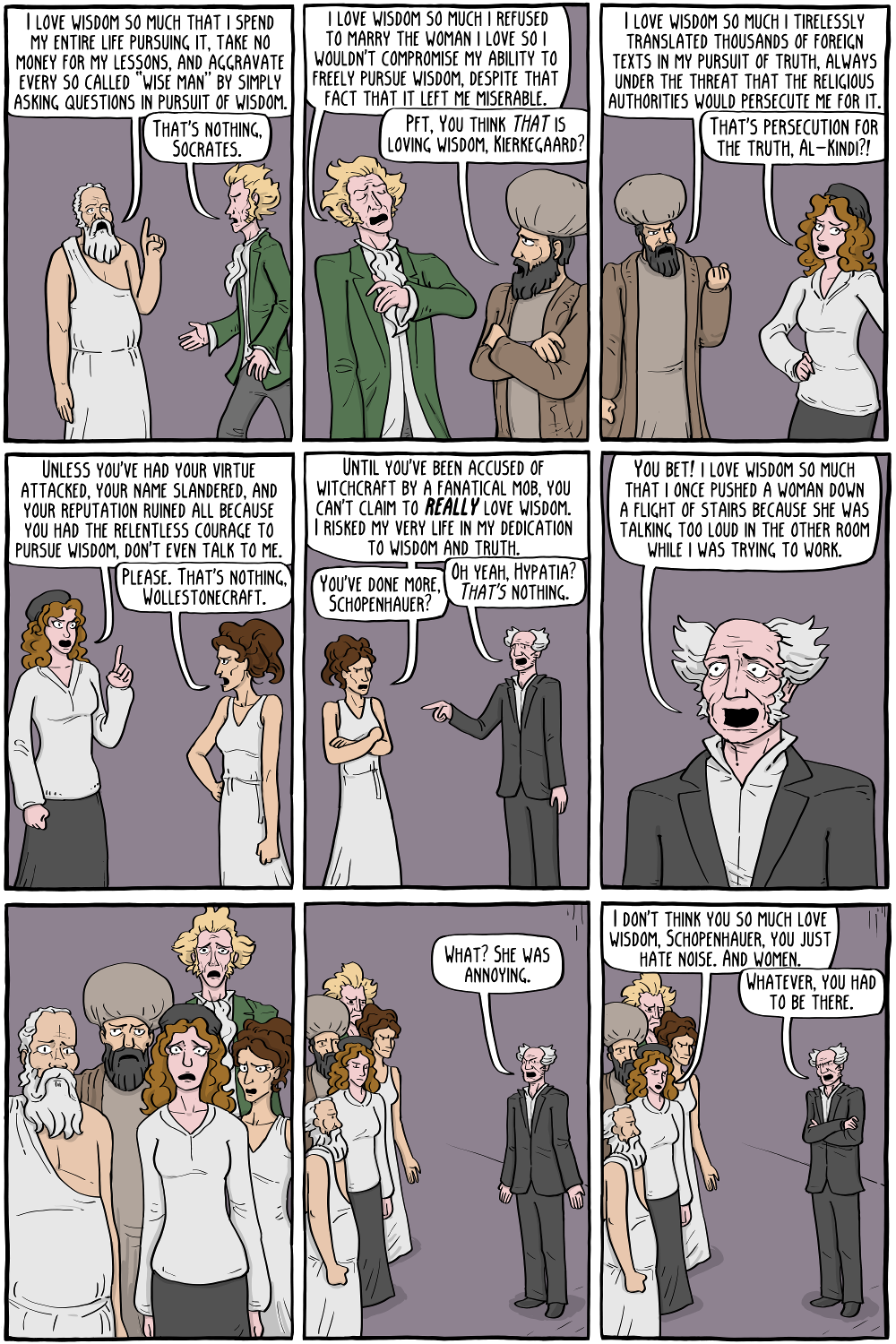
The reasons for Kierkegaard not marrying Regine Olsen, whom he was engaged to, aren't entirely clear. On some account it is to dedicate himself entirely to philosophy, and indeed after the engagement was broken off he became very productive.
Al-Kindi was one of the first Islamic philosophers to translate the texts of Greek thinkers into Arabic, a very difficult and time consuming task, as no one really spoke both Greek and Arabic, so they had to hire Christians who could translate it into Syriac or other languages first. Often these translators were not philosophically trained, so the translations could be very rough. While he didn't face "persecution", and was in fact given great resources for this task, some criticized him for seeking wisdom in foreign authors, claiming that the Koran held all the truths one might need. To this he countered that the truth is universal, and truths found among the Greeks are just as true as any found anywhere else. In fact, during the Islamic Golden Age, persecution of philosophers for their ideas was basically unknown.
Mary Wollestonecraft suffered greatly in the press, especially after her death when the details of her life came out, which were published by her lover William Godwin. The fact that she had affairs, and was possibly an Atheist, were used against her and caused her to perhaps not be as widely read. Her ideas mainly focused on allowing women to be educated, because truth and virtue are common to all as created by God, therefore there cannot be "female" truth and virtue, and "male" truth and virtue. So men and women should be educated in the same fashion. Obviously, not everyone was a fan of this idea.
Little is known of Hypatia of Alexandria for certain, but according to some versions of the story she was dragged through the streets and murdered by a fanatical mob, who accused her of witchcraft. It is known that she taught mathematics and philosophy.
Schopenhauer once pushed a woman down a flight of stairs because she was too noisy. He went to court for this, and as punishment had to pay her for the rest of his life. You can read his short essay On Noise, for his thoughts on the matter. Here is the opening paragraph:
Kant wrote a treatise on The Vital Powers. I should prefer to write a dirge for them. The superabundant display of vitality, which takes the form of knocking, hammering, and tumbling things about, has proved a daily torment to me all my life long. There are people, it is true - nay, a great many people - who smile at such things, because they are not sensitive to noise; but they are just the very people who are also not sensitive to argument, or thought, or poetry, or art, in a word, to any kind of intellectual influence. The reason of it is that the tissue of their brains is of a very rough and coarse quality. On the other hand, noise is a torture to intellectual people. In the biographies of almost all great writers, or wherever else their personal utterances are recorded, I find complaints about it; in the case of Kant, for instance, Goethe, Lichtenberg, Jean Paul; and if it should happen that any writer has omitted to express himself on the matter, it is only for want of an opportunity.
Permanent Link to this Comic: https://existentialcomics.com/comic/237
Support the comic on Patreon!










